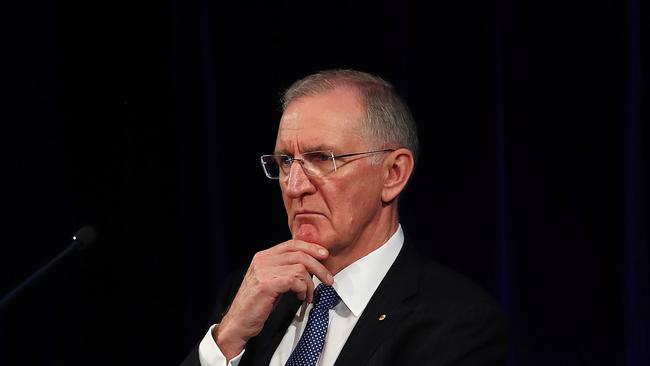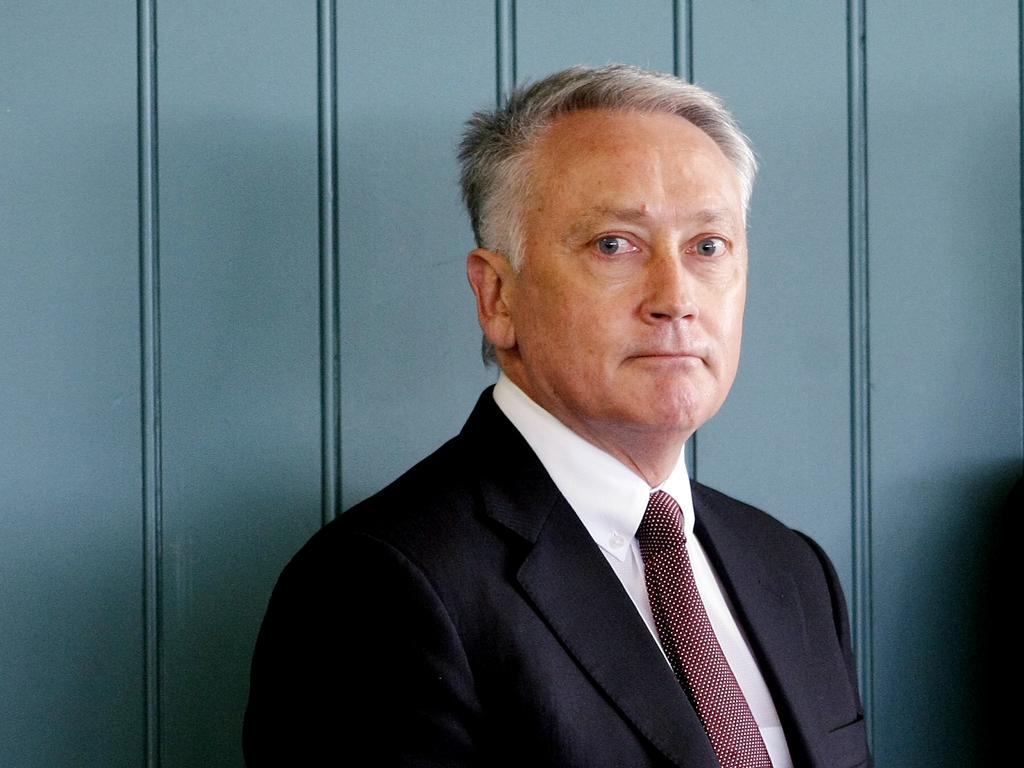Digital laggards will be left behind, says QBE chair Mike Wilkins
QBE’s Mike Wilkins says digital changes the coronavirus is forcing on business are irreversible, and those that don’t adapt will be left behind.

QBE chairman Mike Wilkins says the digital changes the coronavirus is forcing on business are irreversible, saying those that don’t adapt quickly are likely to be left behind.
Speaking at the insurer’s virtual annual general meeting on Thursday, Mr Wilkins also told shareholders the company would emerge strongly on the other side of the COVID-19 crisis following its move to shore up its capital position and bolster its financial resilience.
Mr Wilkins warned that no business would be immune from the crisis but said QBE was well placed to withstand the challenges ahead and thrive in the future.
“Our capital plan takes us to well above our own target for capital and comfortably within ‘AA’ S&P capital levels.
“It will make QBE even stronger in the face of the challenging environment in which we all find ourselves and will position the business to be able to take advantage of opportunities that might arise as the world recovers,” Mr Wilkins told shareholders.
The insurer will also accelerate its digital transformation strategy to build “best in class data and digital capabilities” to meet the challenges of the crisis, group chief executive Pat Regan said.
“At the same time as we are protecting the financial strength of the business, I believe it is also now more important than ever for us – and the entire industry – to accelerate the momentum on our digital transformation journey.
“The digital disruption and related trends that were underway before the onset of this global pandemic will only become faster and more pronounced through the recovery. COVID-19 has turbocharged how we use and engage with technology in an unprecedented and irreversible way,” he said at the meeting.
The pace of change in the insurance industry meant there would be fast adopters as well as those who would get left behind, he warned as he told shareholders the group’s digital transformation would remain a core focus for the business in 2020.
Addressing a climate-related shareholder resolution calling on the insurer to publish its exposure reduction targets for oil and gas, Mr Wilkins warned that climate change was a material risk for QBE but said the board recommended against voting for the resolution.
“We believe we must play a part in the global response to this challenge. We support the objectives of the Paris Agreement and we have made a number of important changes within our business to limit our own environmental impact.
“We have also made changes to our investment and underwriting portfolio, including our commitment to phase out all direct insurance services for all thermal coal customers by January 1, 2030, at the latest,” he said.
QBE has already committed to setting metrics and targets to measure and monitor climate-related risks and opportunities, he added.
“The targets will be portfolio-wide – not just confined to oil and gas as the proposed resolution asks – and they will be published in our 2020 Annual Report – one-year earlier than the timing described in the proposed resolution.”
QBE last month tapped the market with a $US875m raising in a move it said would take it to an “extremely” strong capital position to withstand “severe market downside scenarios”.
The raising was part of QBE’s plan to bolster its capital, reduce gearing and improve earnings resilience through the COVID-19 crisis.
As part of the plan, it also de-risked its investment book, exiting all equities as well as emerging market and high yield debt.
Mr Regan in April said trading conditions across the group had strengthened during the first quarter, with strong premium rate momentum across all divisions.
“We’re not seeing the same kind of impacts to our revenues that a lot of other sectors are, so right now, we’re not seeing acute impacts in either our revenue levels or claims costs,” he said, with revenue falls for 2020 expected to be “relatively modest”.
Group-wide premium rate increases averaged 8 per cent in the quarter, up from 4 per cent in the prior corresponding period but premium rises could come under pressure in the months ahead as the coronavirus shutdown batters the economy.






To join the conversation, please log in. Don't have an account? Register
Join the conversation, you are commenting as Logout